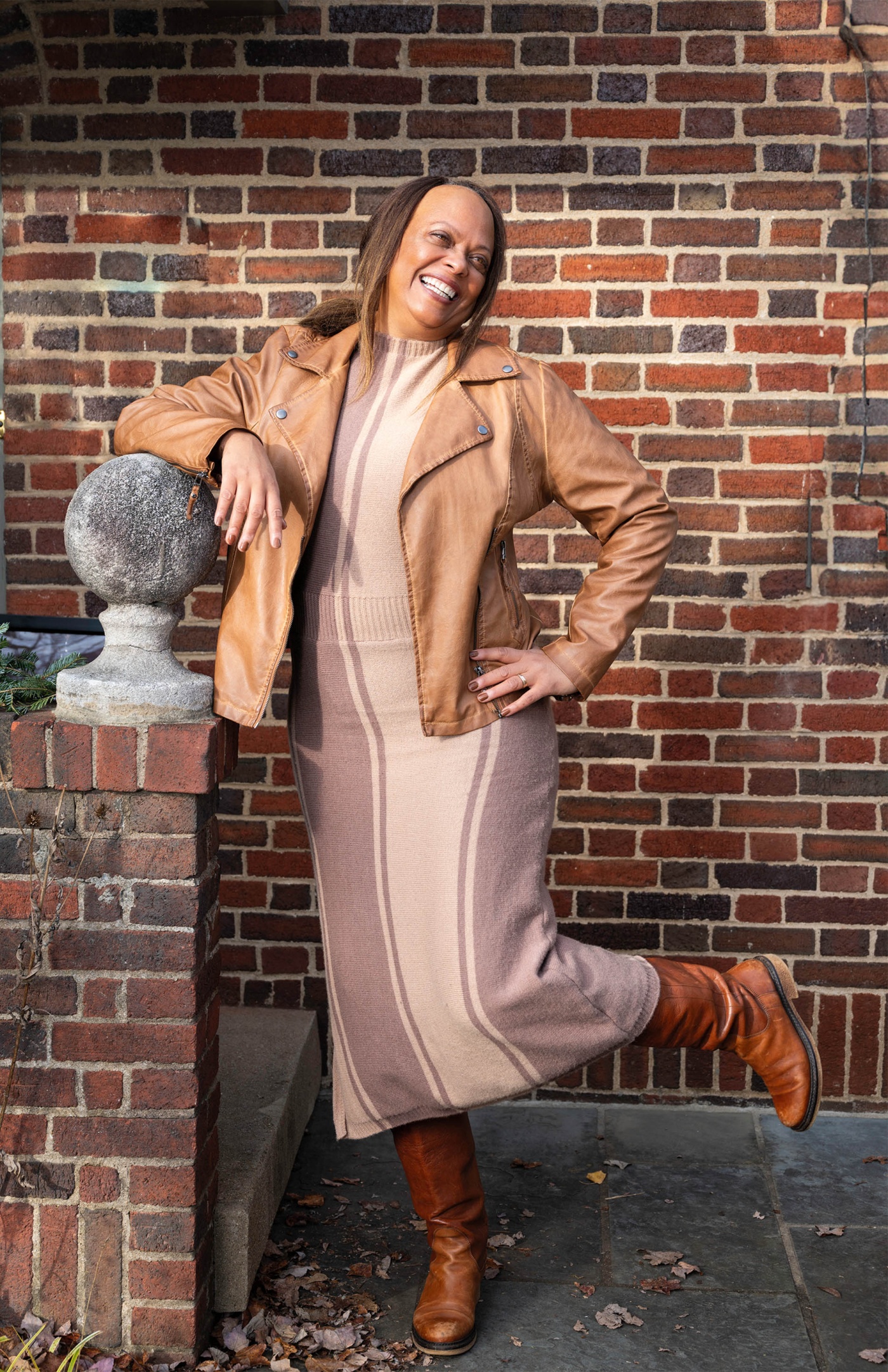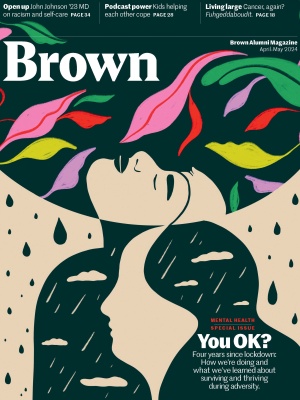Talking Cure
A podcast by two sisters helps Black women navigate healthcare.
When Brenda Barbour ’86 and her sister Elaine Curry started a podcast about Black women’s health, they knew they didn’t want to interview experts; that ground, they figured, was already well-covered. Instead, Body Wealth is all about navigating the challenging terrain of American healthcare, for both improving physical and mental health and being your own advocate.

It’s a journey that Barbour has experienced firsthand. She was in her mid-40s when a friend of a friend died of colon cancer, and in her honor, Barbour’s friend urged others to get colonoscopies. Barbour’s longtime doctor said she could wait until 50, and when Barbour said she’d heard that Black people present with colon cancer earlier, her doctor suggested that had to do with lifestyle and socioeconomic factors, not race. Finally Barbour said “humor me,” and asked for the order.
The colonoscopy revealed a large polyp and she was diagnosed with early-stage cancer. That and two subsequent breast cancer diagnoses helped point the computer science concentrator, who lives in Washington, D.C., and whose wide-ranging career had taken her from consulting to a communications post at the World Bank that included a podcast, in a new direction.
Barbour and her sister, who worked in real estate development in North Carolina, had long wanted to pursue a project together. Amid the Black Lives Matter movement, the sisters felt that “we wanted to do something more, and we wanted to do something for Black women,” Barbour said. They were considering a book until a fateful conversation with Curry’s daughter-in-law, who remarked that she could listen to the sisters talk all day.
On each episode of the podcast, now in its second season, they’re joined by a guest who talks on a topic of her choice. They don’t try to get to the root causes of health disparities; their focus is on what Barbour says she most loves, “the power of personal stories.”
One recurring theme, she said, is the experience of “not being listened to” by healthcare providers. Another is overcoming the stigma of seeking help for mental health issues, something she says exists in all communities but “certainly in the Black community.” Episodes have focused on everything from hypothyroidism and osteoporosis to imposter syndrome and accessing mental health services on college campuses.
When she reached out to her Brown roommate Krista Rimple Bradley ’86, Barbour thought she’d want to talk about living with rheumatoid arthritis. Instead Bradley discussed how she views having ADHD as her “superpower.”
Barbour says the sisters never doubted that mental health as well as physical health would be a focus. When people have health challenges, she noted, it can translate to depression and anxiety, as it did for her after powering through two rounds of cancer treatment only to face a third diagnosis in five years. Her daughter, she said, experiences health anxiety that she traces back to Barbour’s illnesses.
“We always saw them as interconnected,” Barbour said.





